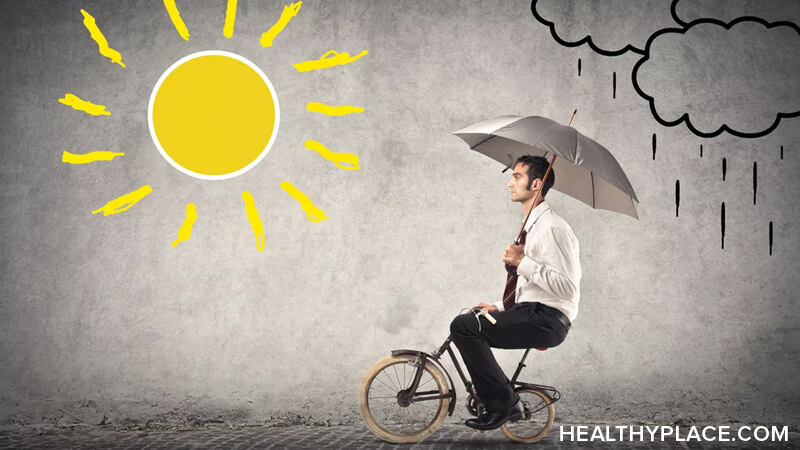How PTSD Can Cause Depression

Depression can be caused by posttraumatic stress disorder (PTSD). After someone goes through a traumatic experience, it's normal to feel sorrow, confusion, and anger--all of which can manifest into depression.
While some people experience major depressive disorder (MDD) and PTSD concurrently, I only experience depression as a symptom of PTSD. My depressive episodes are directly linked to my trauma, meaning that PTSD caused my depression.
My depressive episodes last about two weeks at a time, and most of them happen sporadically throughout the year. Some episodes are easier to anticipate than others. For example, I always get depressed in the weeks leading up to my birthday. It's so predictable that I even save vacation days for that time of year so I can process my feelings somewhere private.
What PTSD Caused Depression Feels Like
Depression caused by PTSD will be different for each of us. Everyone experiences depression through the lens of their own life, and there are plenty of different ways to describe how it feels. For me, depression feels like being stuck in the mud. No matter how hard I try to pull my legs free and step into the grassy field ahead, I can't get loose. I'm stuck in place as the world passes by me, unable to free myself from the heavy weight that's holding me down.
There have been times in the past that I've experienced circumstantial depression rather than trauma-related depression. In those instances, I've been able to slowly loosen myself from the metaphorical mud by moving forward in my life. When I unexpectedly lost a job, I found a new one. When I had to move away from a partner I loved, I started dating again.
With trauma-related depression, it's much harder for me to move forward. I often wonder what my life would be like if I had not experienced my trauma, and it's this thought process that drives the majority of my depressive episodes. I get lost in a sea of what-ifs, wishing I could go through life without feeling trapped by my past. The things I went through were scary, and I don't like having to relive those memories in the present.
How to Cope with Depression Caused by PTSD
The best way I have found to get out a depressive PTSD episode is to remove my mind from the past as much as possible. PTSD has a way of luring me into negative thoughts and memories, and getting away from those are necessary to lift myself out of my depression.
I usually spend the first week of a PTSD caused depressive episode suppressing my feelings and the second week dealing with them (I'm still working on building healthy coping skills). Since isolation seems to make my depression worse, going back to my normal routine is a big part of my recovery process. Lying in bed all day isolates me from other people; going to work and the gym does not.
If your depression is linked to your trauma, your recovery and coping methods will be unique to your experiences as well. It's important to check in with a doctor or therapist if you're feeling depressed, as they'll be able to help guide you through it. If you're suffering from MDD and PTSD concurrently, a doctor or therapist will also be able to give you a treatment plan that helps both issues without aggravating one or the other.
Depression is undoubtedly a tough PTSD symptom to handle, but it doesn't have to consume your life. You can learn to manage it just like any other symptom of your PTSD, and you can lead a fulfilling life in spite of it.
APA Reference
Avery, B.
(2019, August 20). How PTSD Can Cause Depression, HealthyPlace. Retrieved
on 2026, March 2 from https://www.healthyplace.com/blogs/traumaptsdblog/2019/8/how-ptsd-can-cause-depression